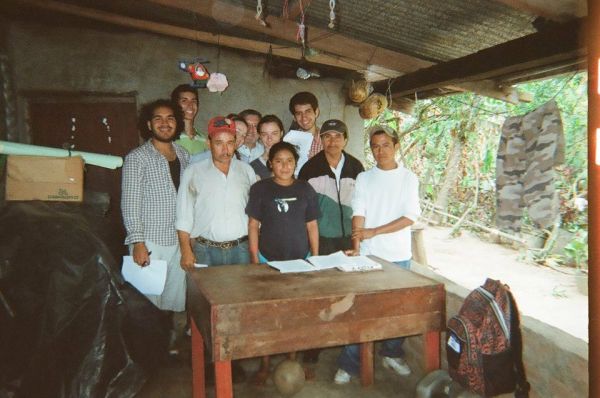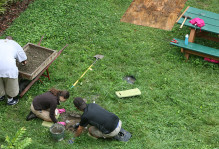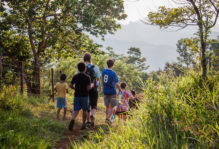Authentic engagement and undergraduate research
Working side-by-side with residents of Chaguite, Nicaragua and Esfuerzo, Dominican Republic, W&M students are trying to understand how communities can improve health and access to health care. They are working with residents to find ways to organize that respect and tap residents’ own skills, knowledge, talents, and very limited material resources. These efforts will not stop or reverse the effects of historical, political, and economic forces, including colonization and racism, but they may create locally sustainable strategies to reduce the effects by promoting resilient communities. The students tap the reservoir of academic knowledge, research skills, and intellectual interests in public health, sociology, medicine, Hispanic studies, international relations, and other fields to pursue undergraduate research with residents rather than on them.
W&M offers opportunities for authentic undergraduate research, meaningful scholarly engagement with professors both on campus and beyond, and curricular, co-curricular, and extra-curricular experiences that challenge conventional wisdom and ethnocentric perspectives. It is my privilege to work with students who act on their vision of the possible. Elsewhere in my blogs, you can read about the extraordinary projects called Medical Aid Nicaragua: Outreach Scholarship (MANOS) and Student Organization for Medical Outreach and Sustainability (SOMOS students work in the Dominican Republic). If you do, you’ll learn that these projects were envisioned by small groups of undergraduate students and nurtured in ongoing collaboration over the course of a decade.
Working with local residents of two small communities, we have built lasting relationships, designed and implemented five-year plans for improved health and health care, nurtured local collaboration, facilitated community contracts with Engineers Without Borders to partner in infrastructural projects that will reduce the effects of persistent flooding and increase access to clean water for all households. We have developed methods of community-based research, elaborated and specified a model and theory of participatory development, and contributed to ongoing academic knowledge through national and international conference papers and published articles. Students in these projects have traveled to conduct research and project activities on average more than four times during the course of their undergraduate studies. Some have done so as many as eight times.
Why W&M? Because undergraduate teaching, research, and engagement in efforts to pursue a meaningful life and positive change are not just words here: It’s what we do.




No comments.
Comments are currently closed. Comments are closed on all posts older than one year, and for those in our archive.